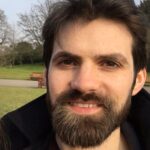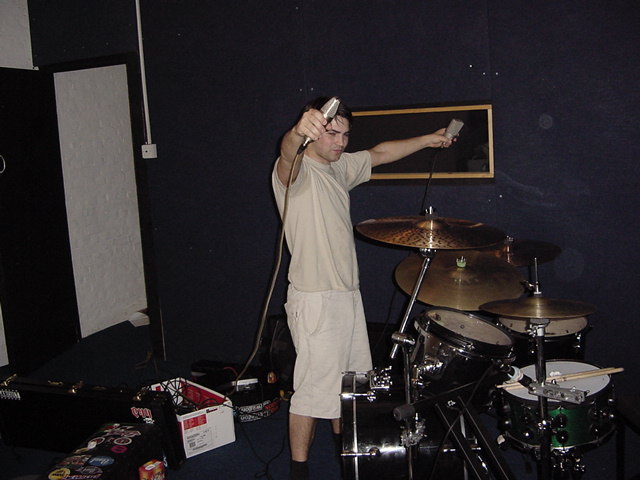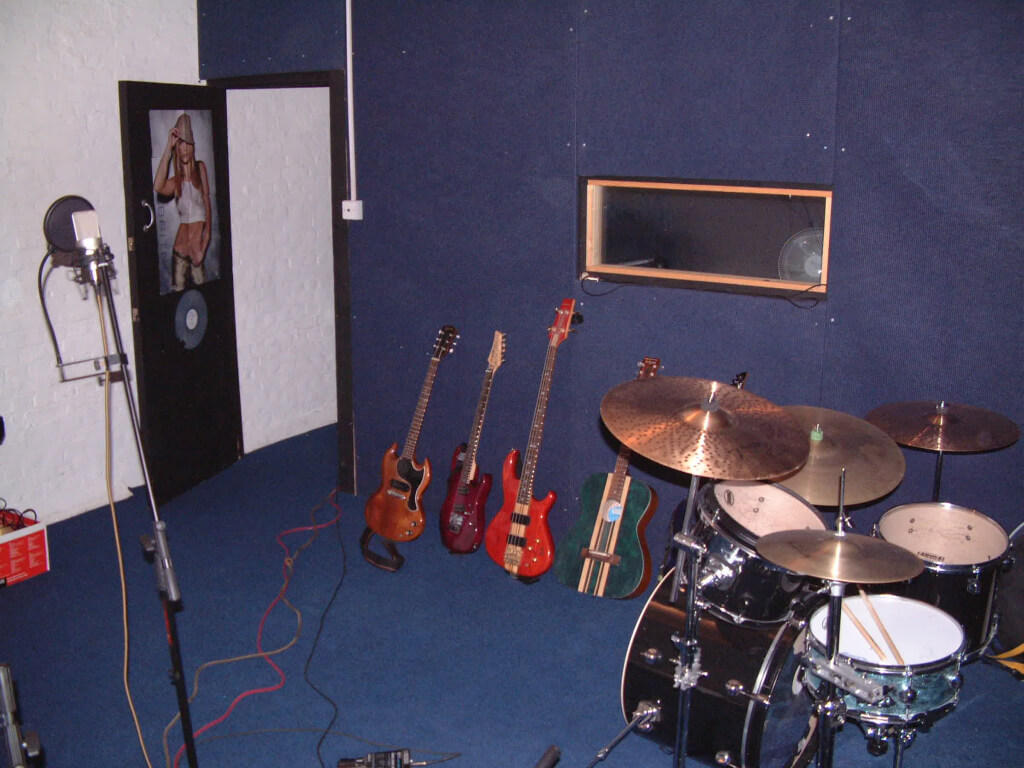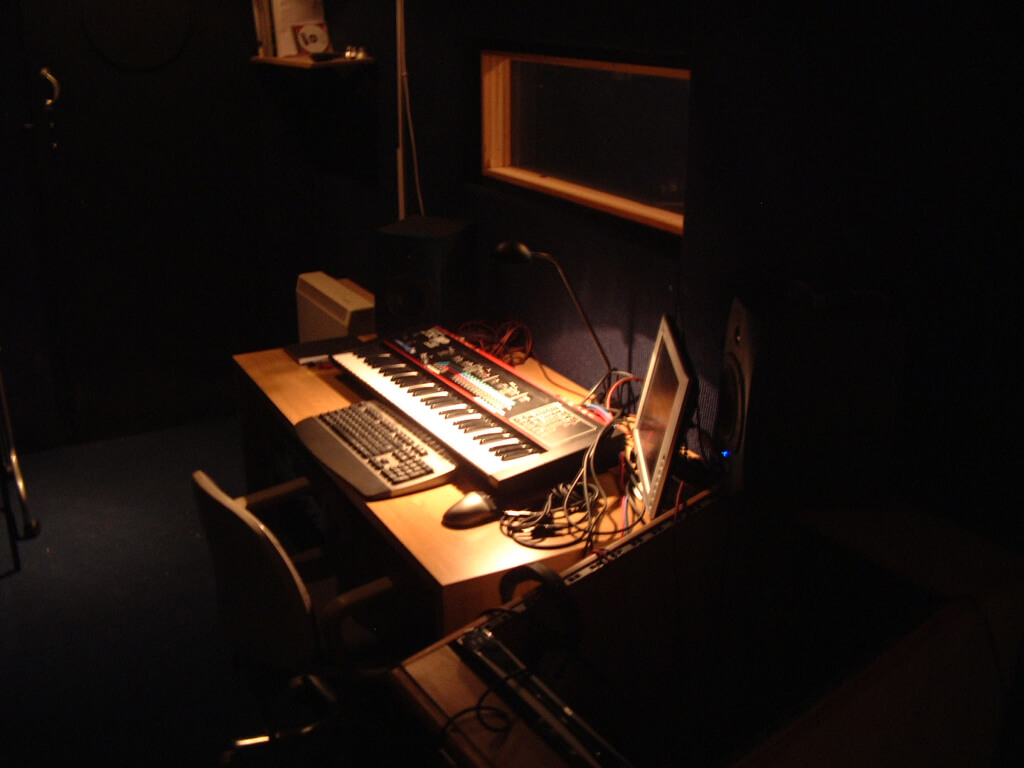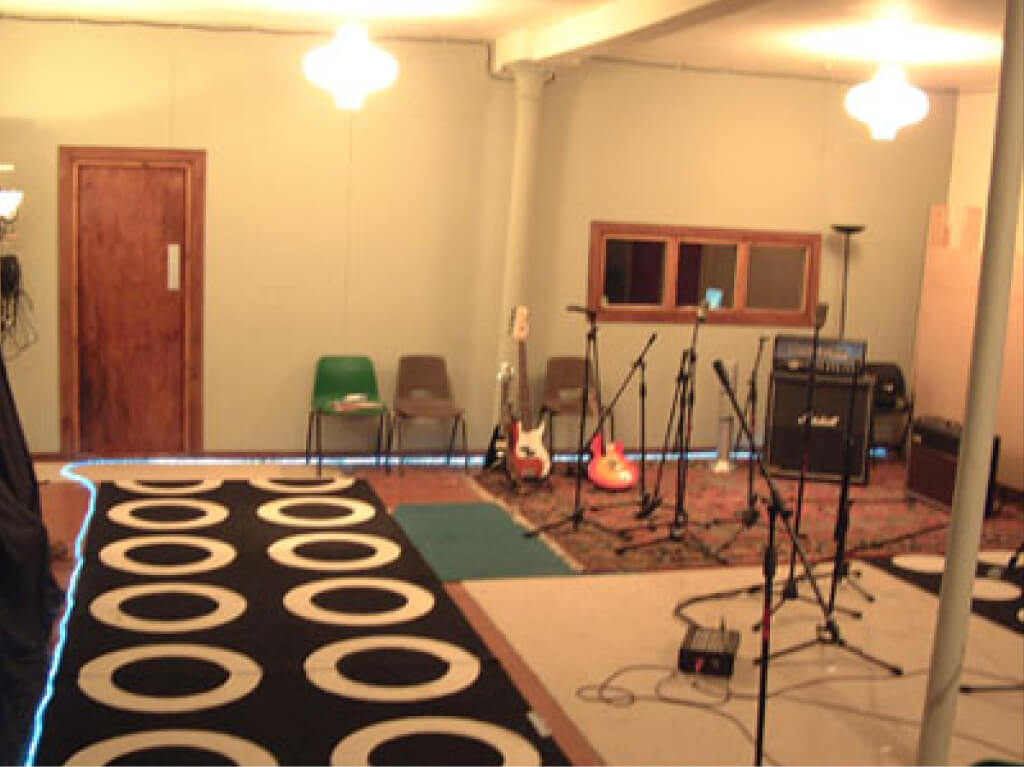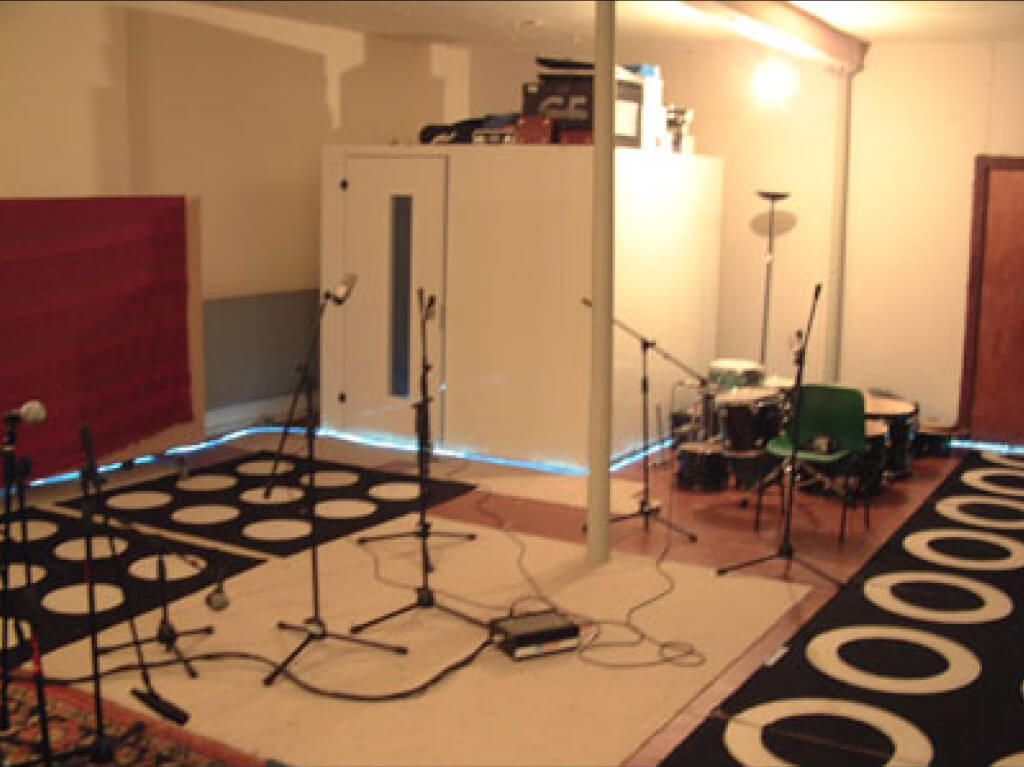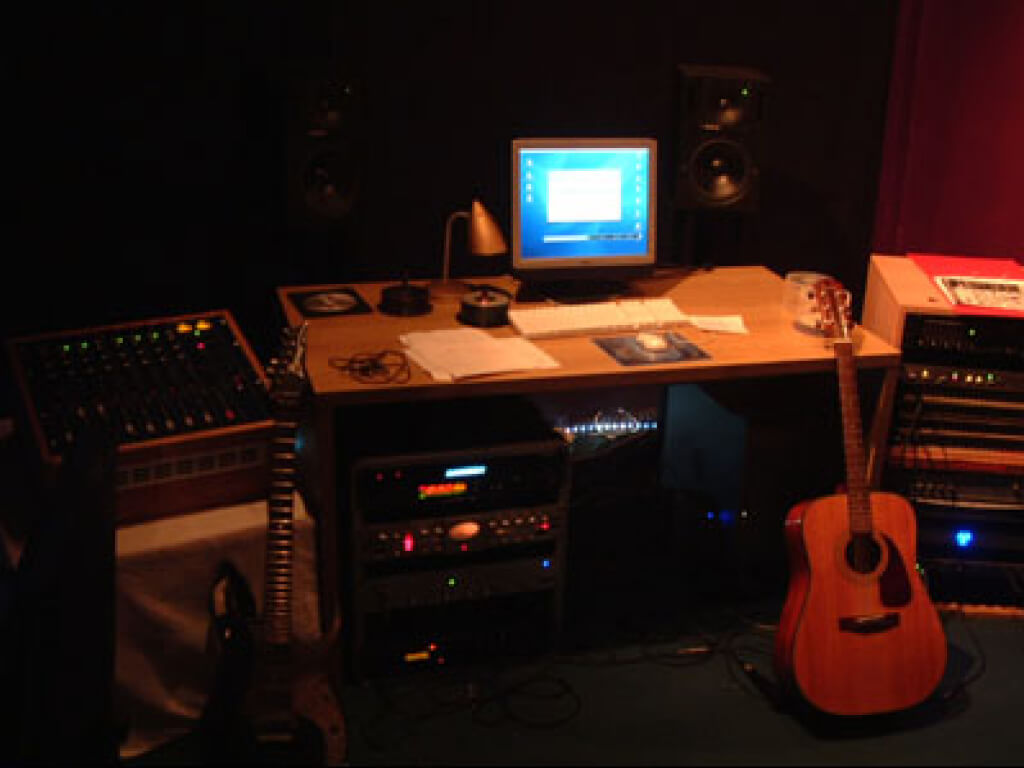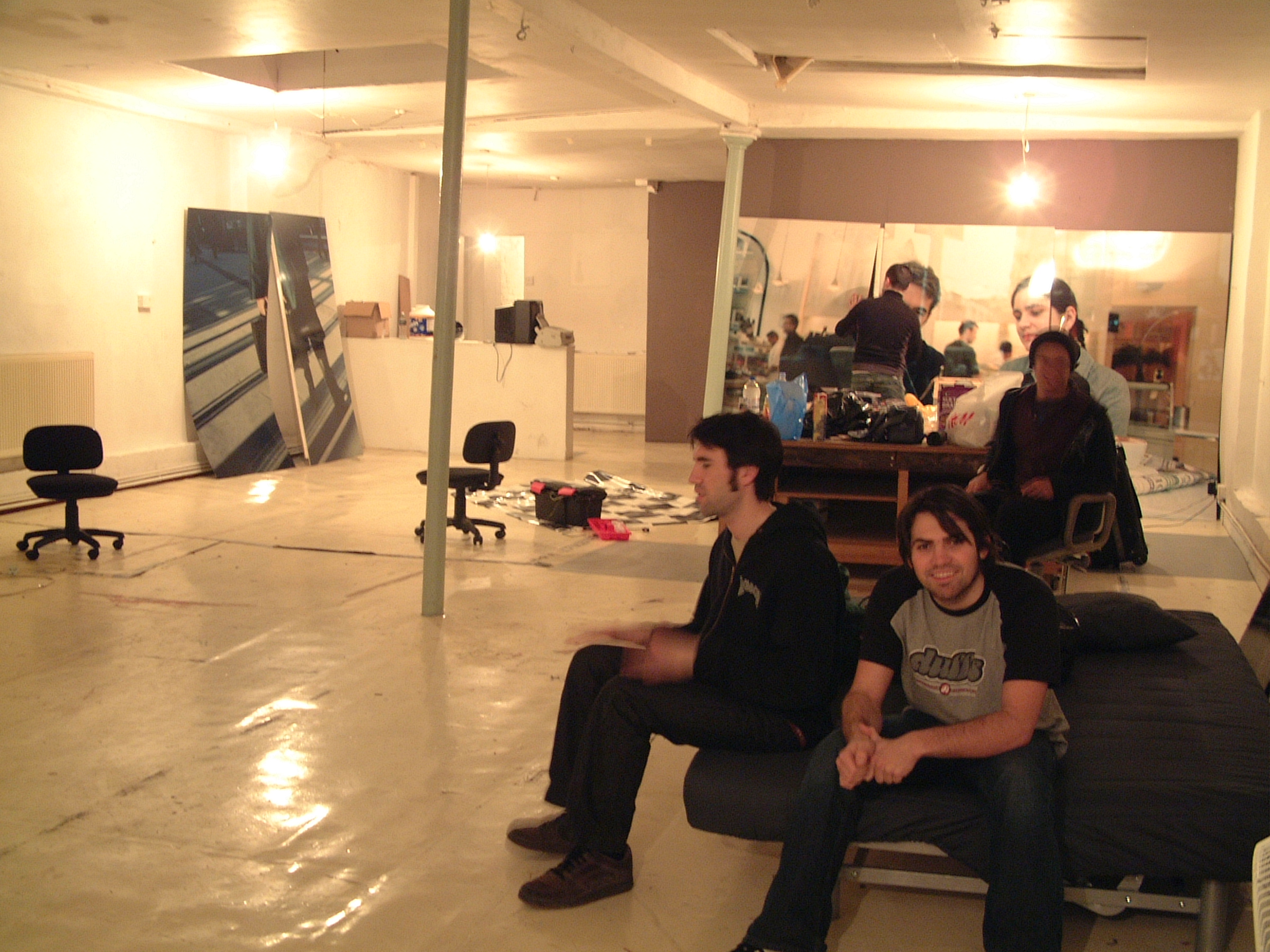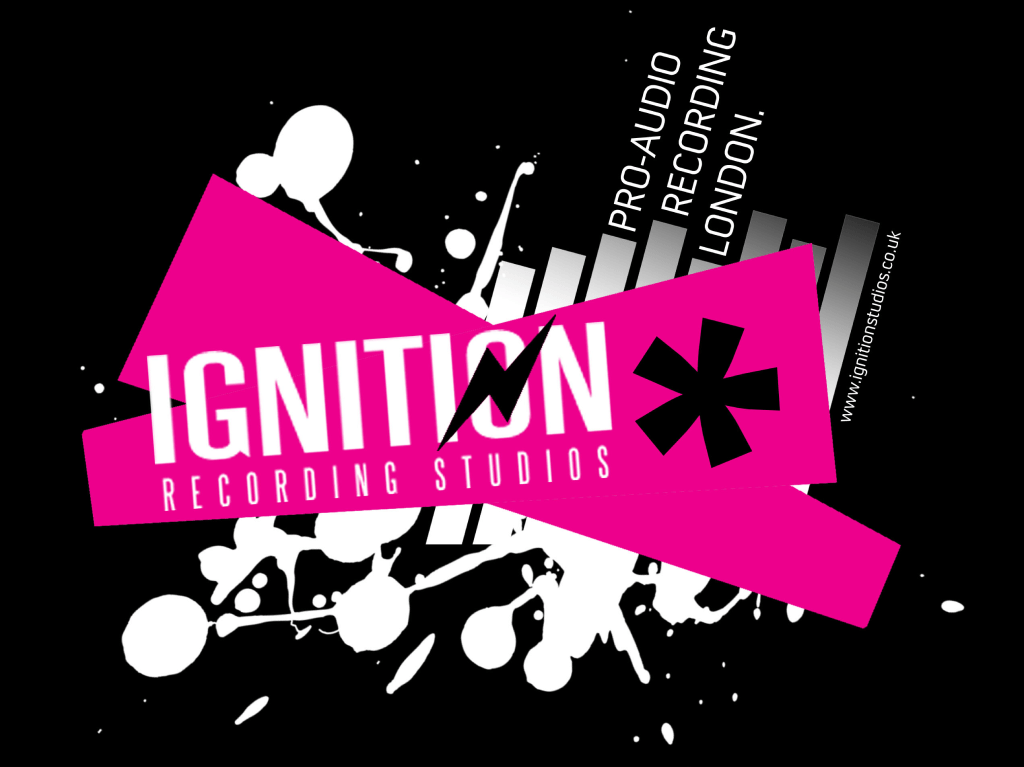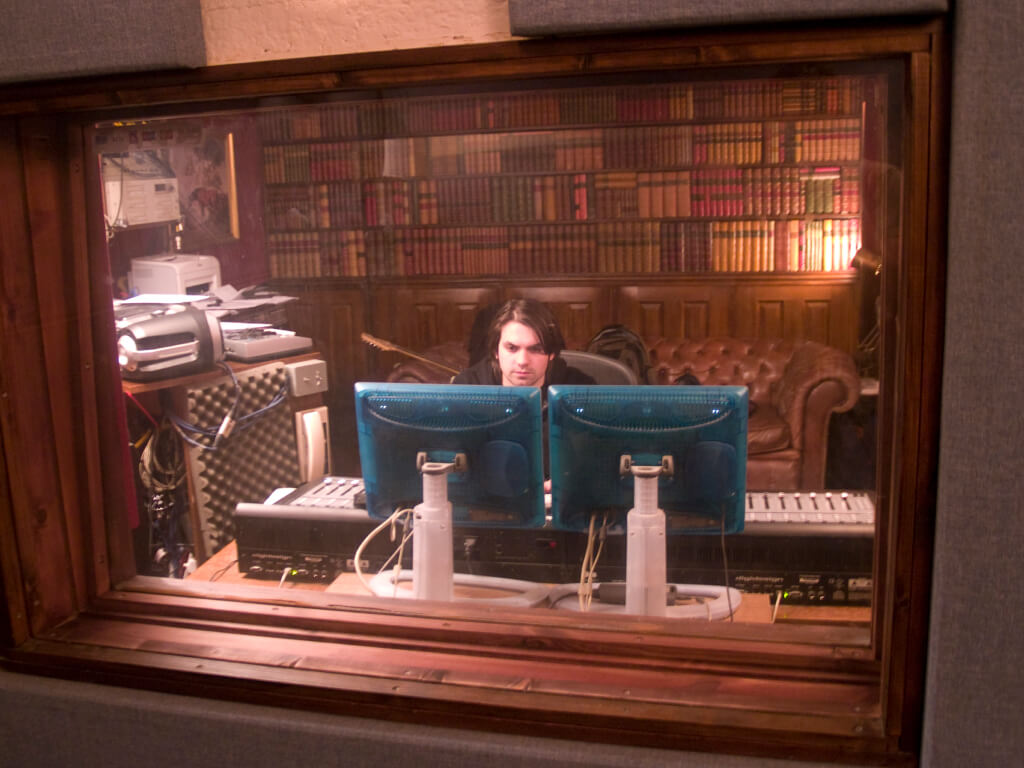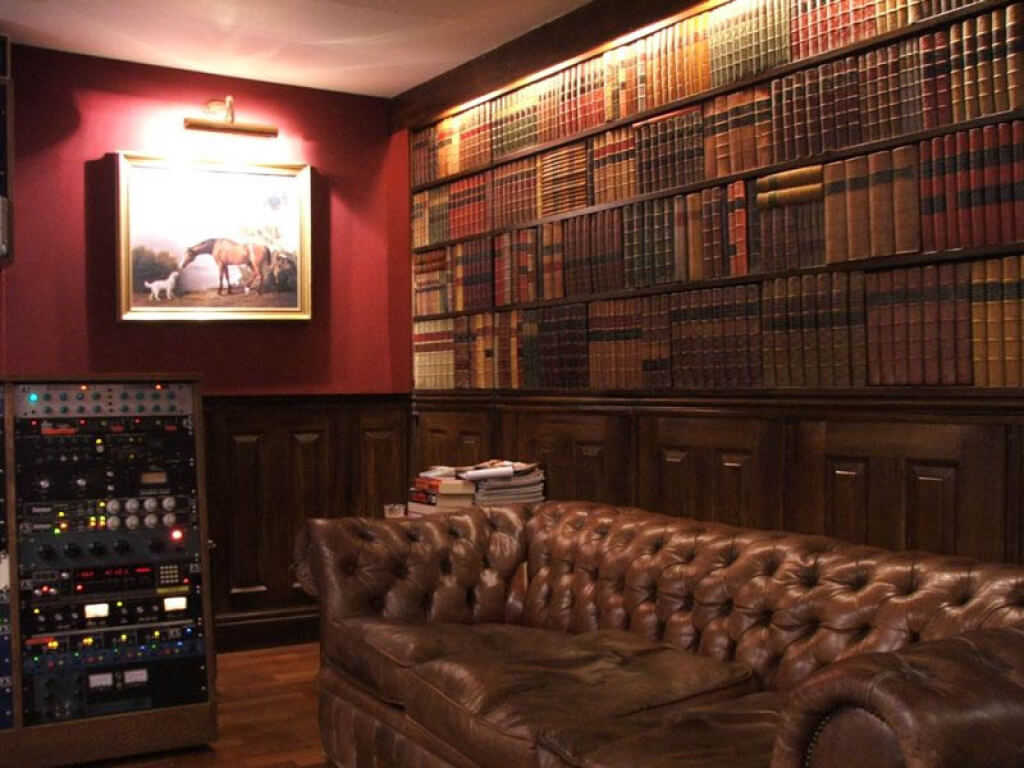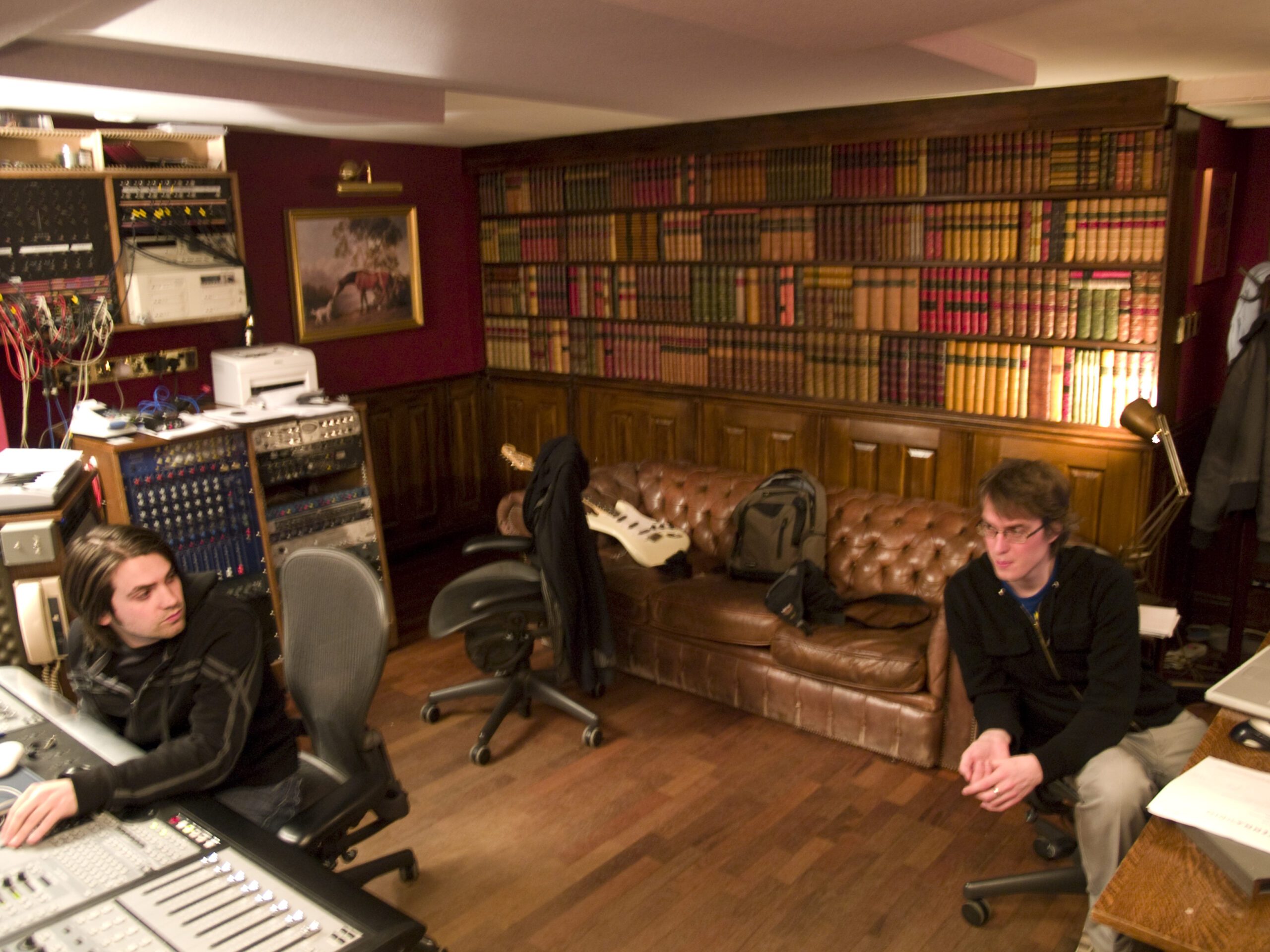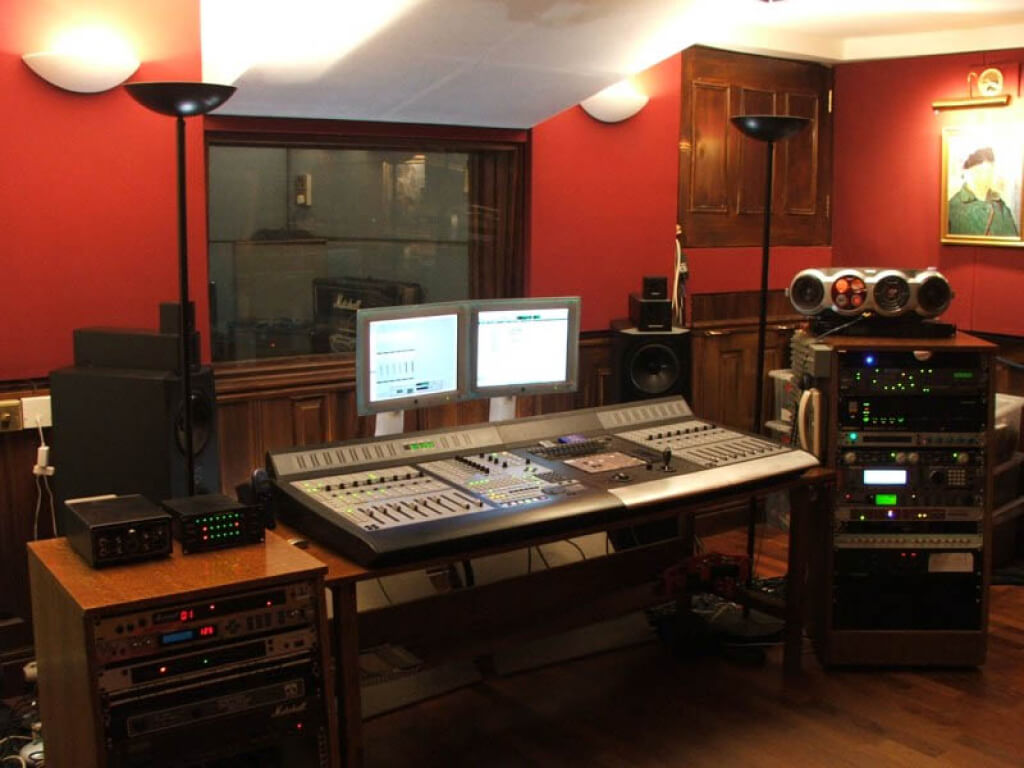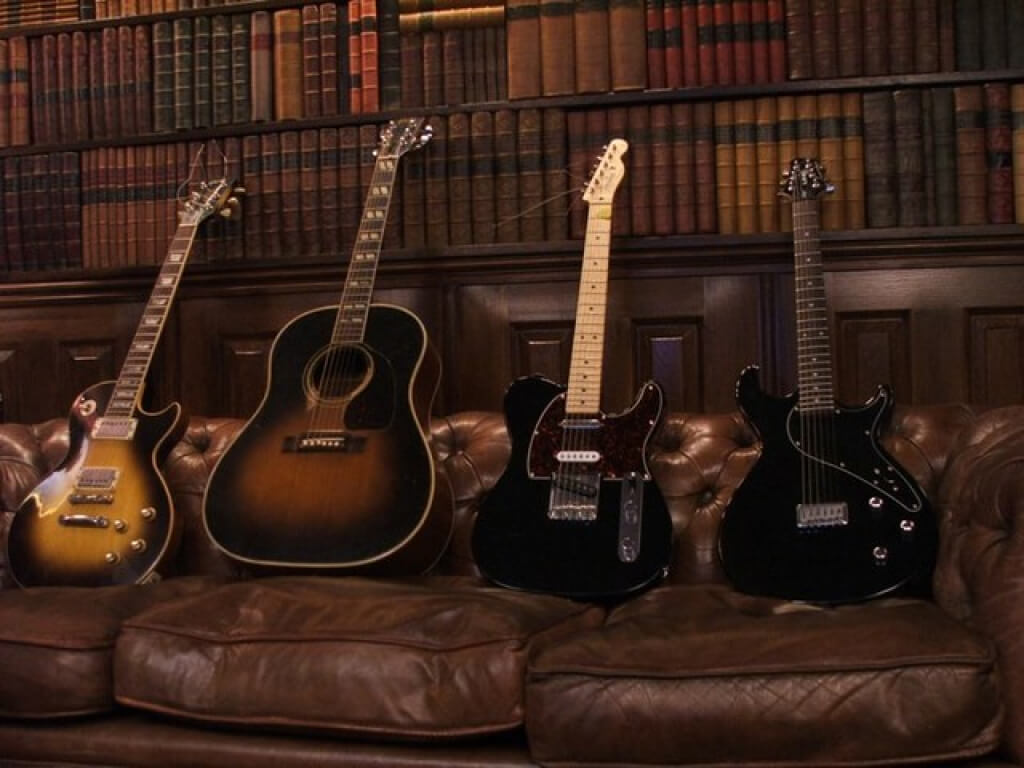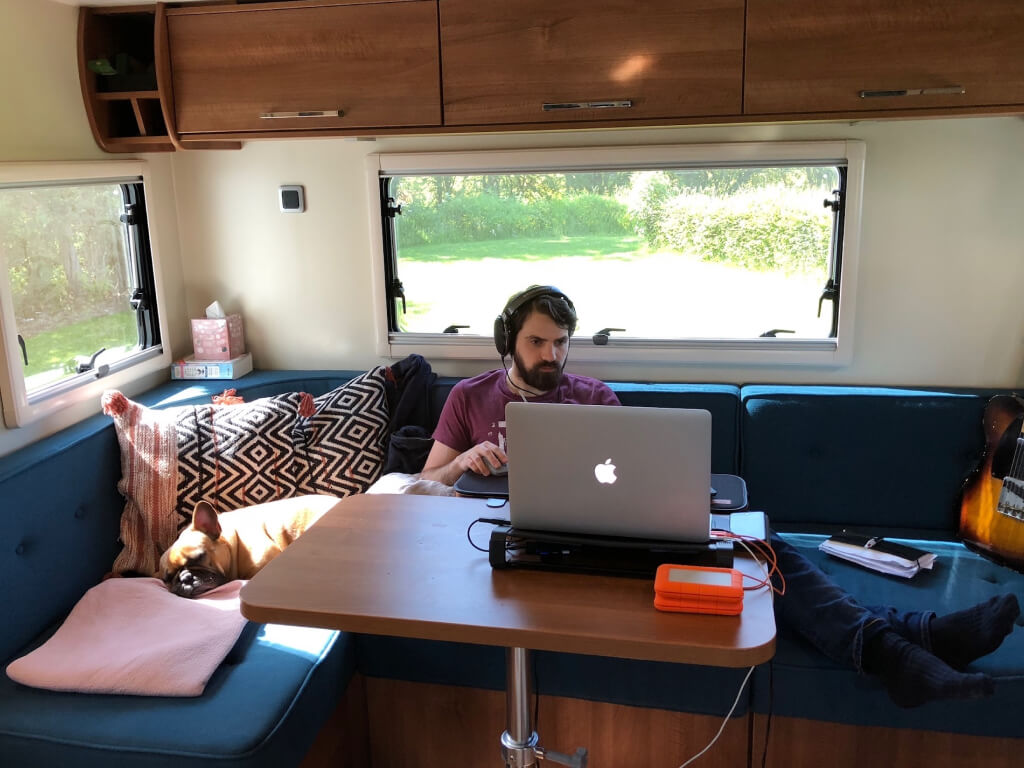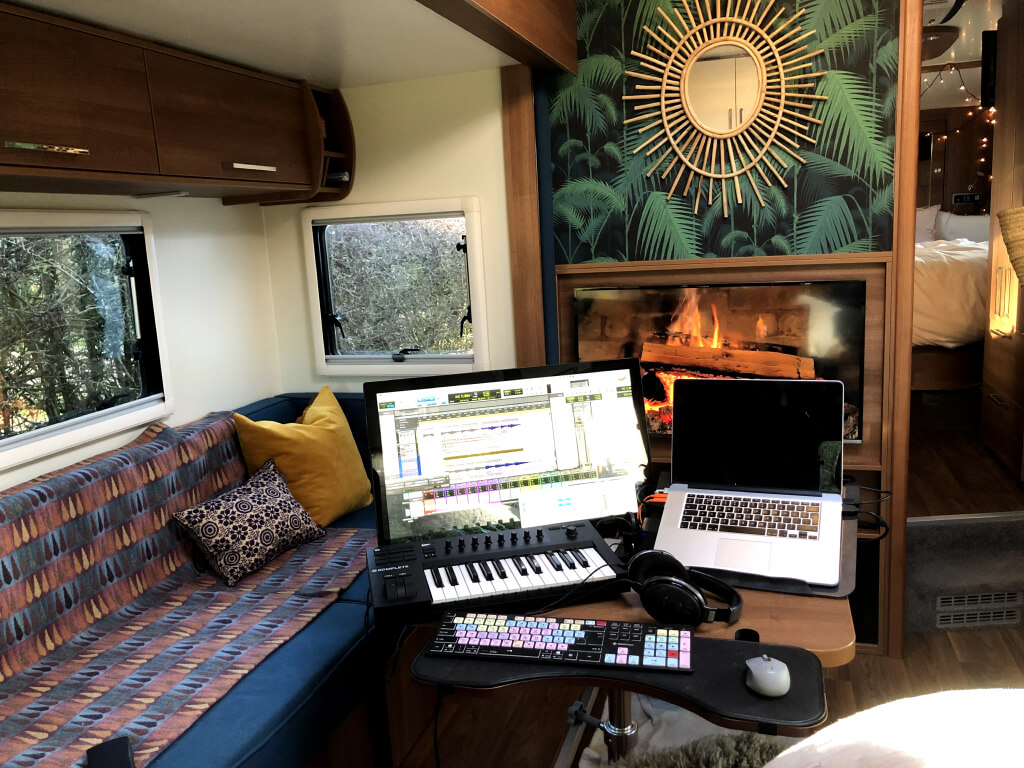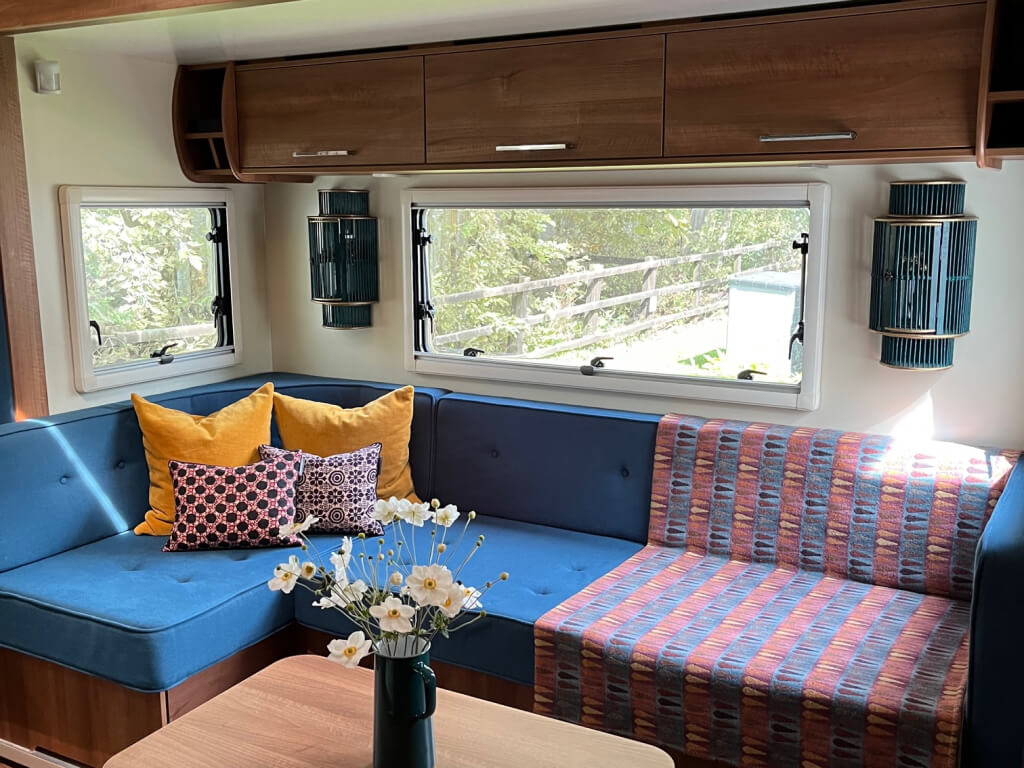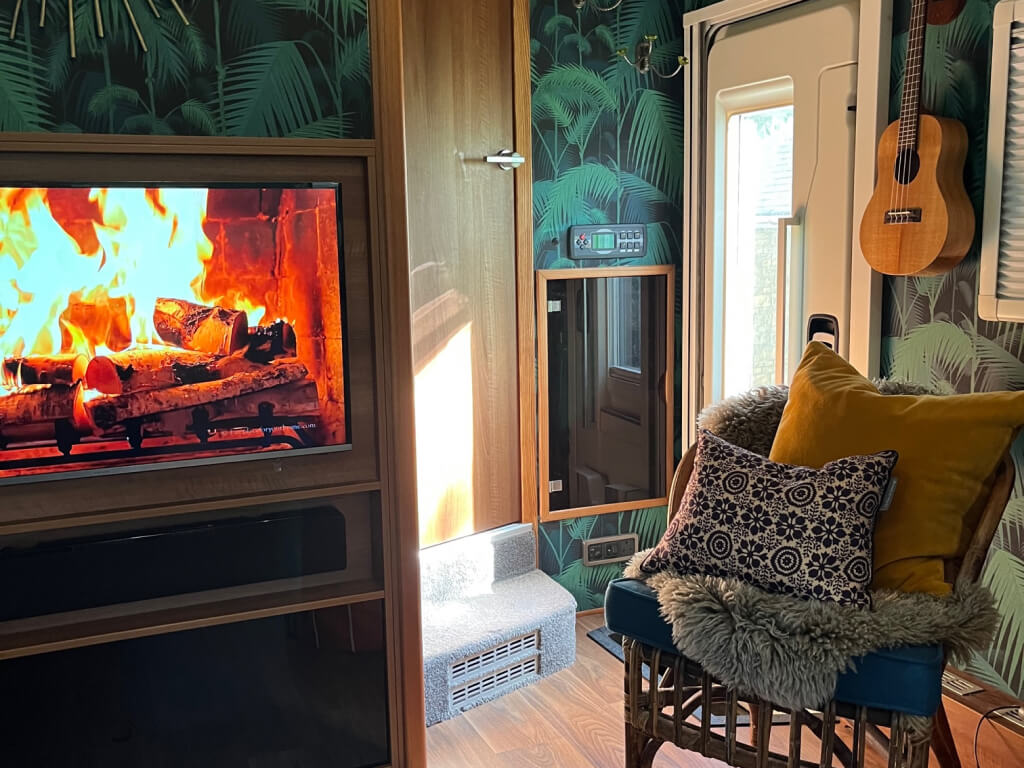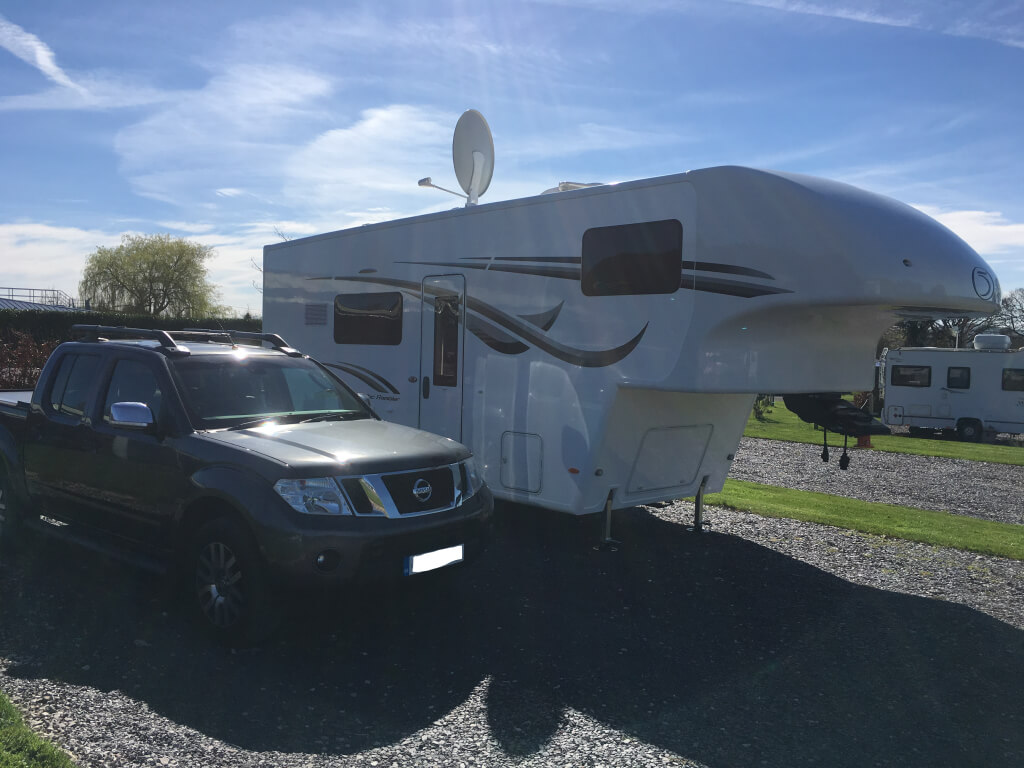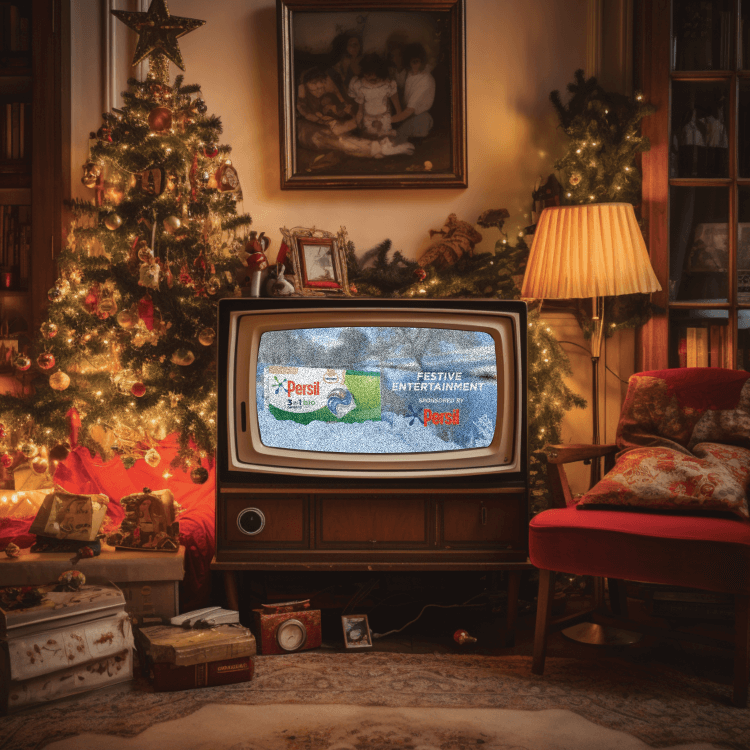The paper round era
I grew up in Northamptonshire, England, in the small countryside town of Brackley. My early musical influences were shaped by a Beach Boys greatest hits cassette that I found in my garage and The Muppet Show LP. Back then, I had no interest in learning to play an instrument – my ambition was to become a ninja turtle.
Aged 13, that changed after hearing “Two Princes” by the Spin Doctors. I just had to get myself an electric guitar and learn that riff! I started saving my paper round earnings until I could afford the cheapest guitar in the Argos catalogue. I took a few lessons and learned some basic chord shapes but I soon started playing by ear.
The Bombjacks era
When the US punk explosion reached UK shores in the mid-90’s, I was instantly hooked. I formed a band with like-minded friends and, in true punk DIY style, launched my own record label, Hectic Records. This was all financed by my job at the local chicken factory. After a few name changes, we settled on The Bombjacks, wrote our first batch of songs and booked a session at our local recording studio to lay down our first demo.
This was all financed by my job at the local chicken factory
I was fascinated by the recording process of that demo. I watched closely as the engineer captured our songs to tape before attempting to polish our scrappy performance as best he could. I left at the end of the day with my first demo and a hunger to learn more about music production.
By the early 2000s we had begun touring the UK and had self-released a few EPs on my label. We sold our CDs at shows and via mail-order which was usually enough to cover the cost of manufacturing them and funding the next release. I put out a total of 12 releases on Hectic Records before winding it down to focus on The Bombjacks.
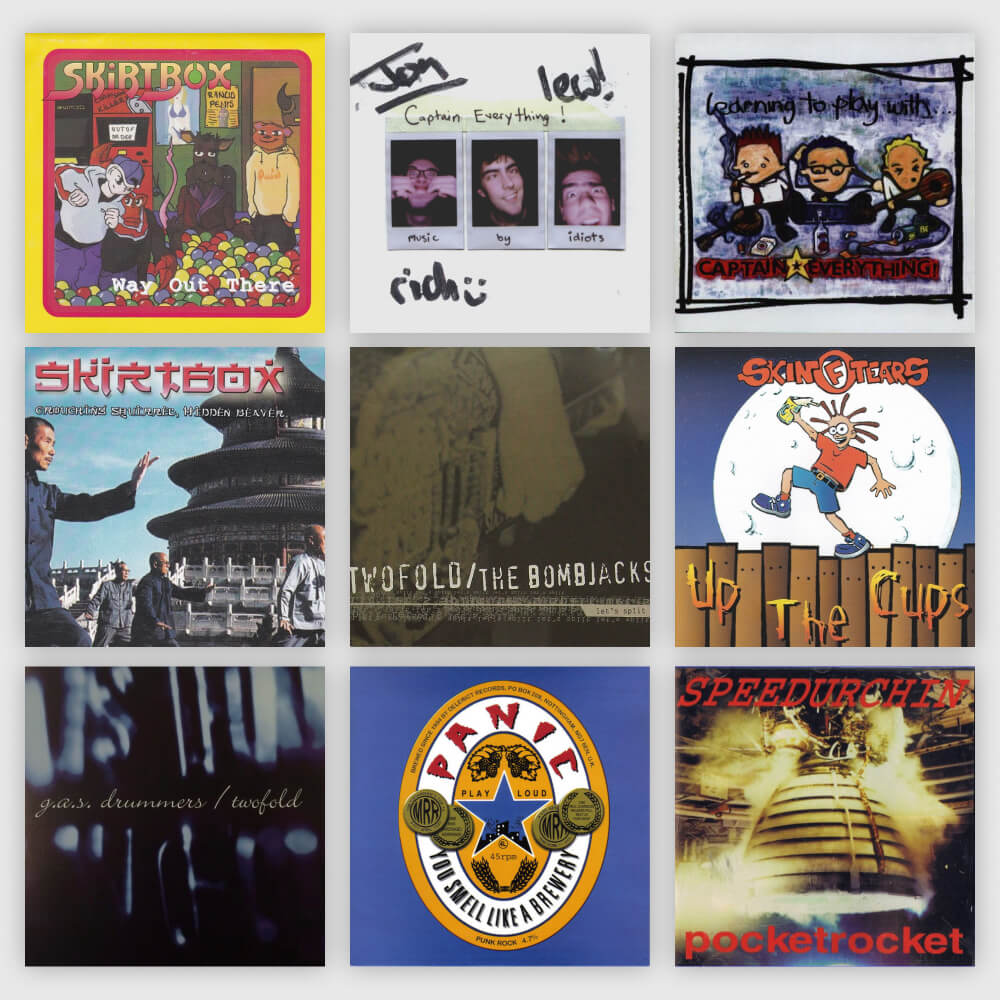
Big in Japan
The following years were the peak for the band and also set me on my path to becoming a music producer. We had recently recorded our first full-length album with Iain Wetherell and released this on Allstar Recordings in the UK and a major label in Japan. After this first album did well, both labels were keen for a follow-up, so we decided to record an EP next.
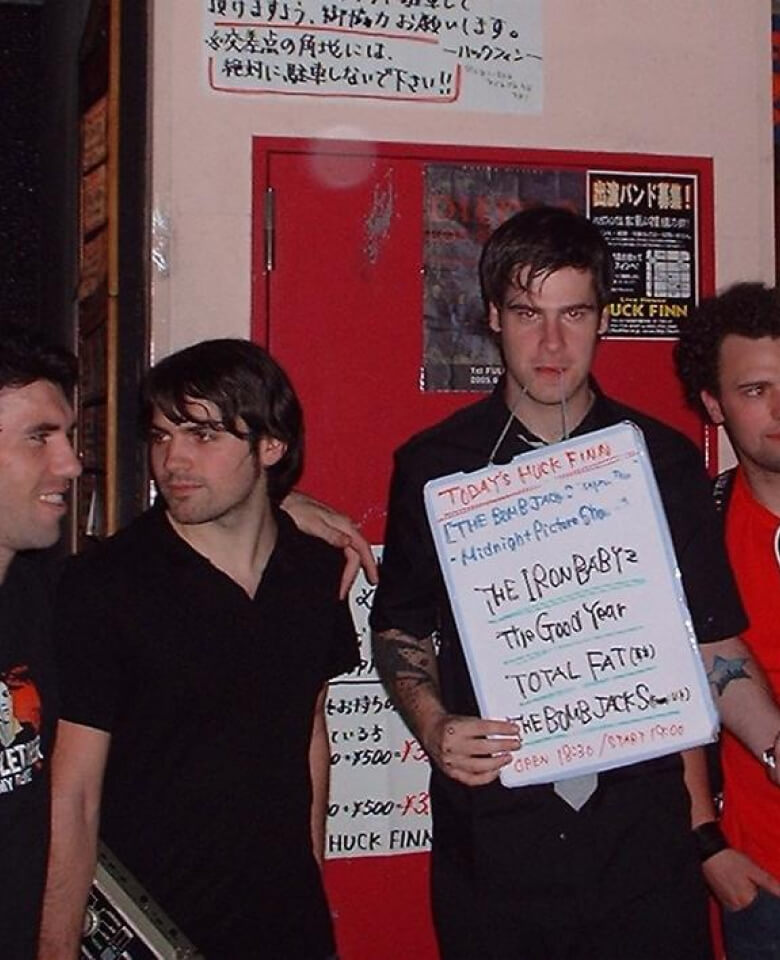
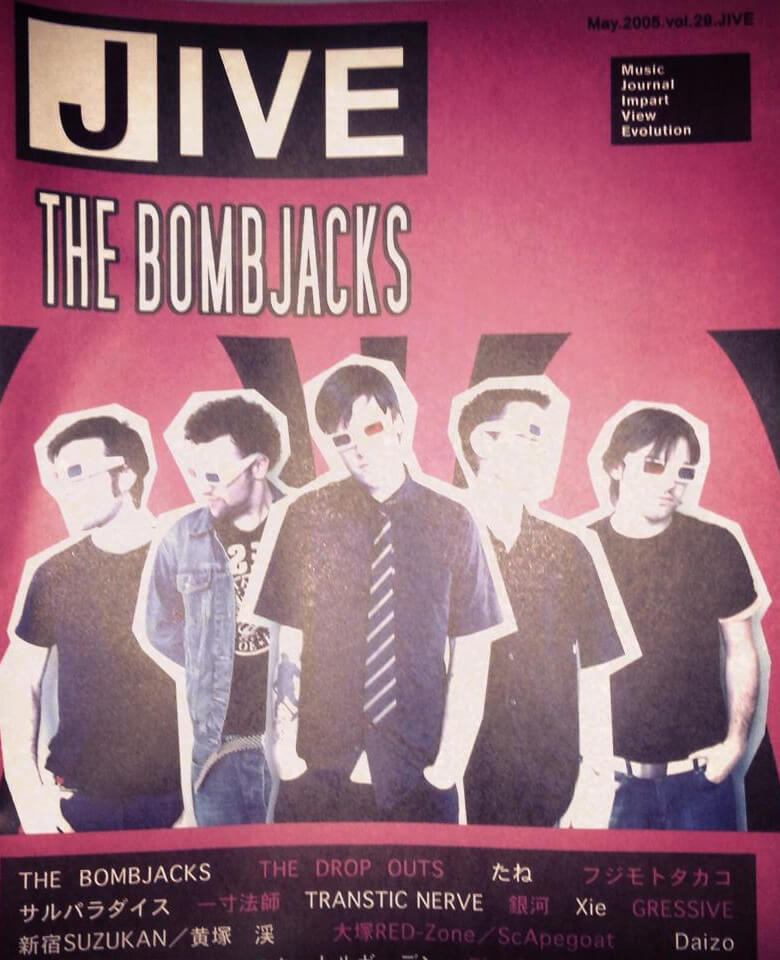
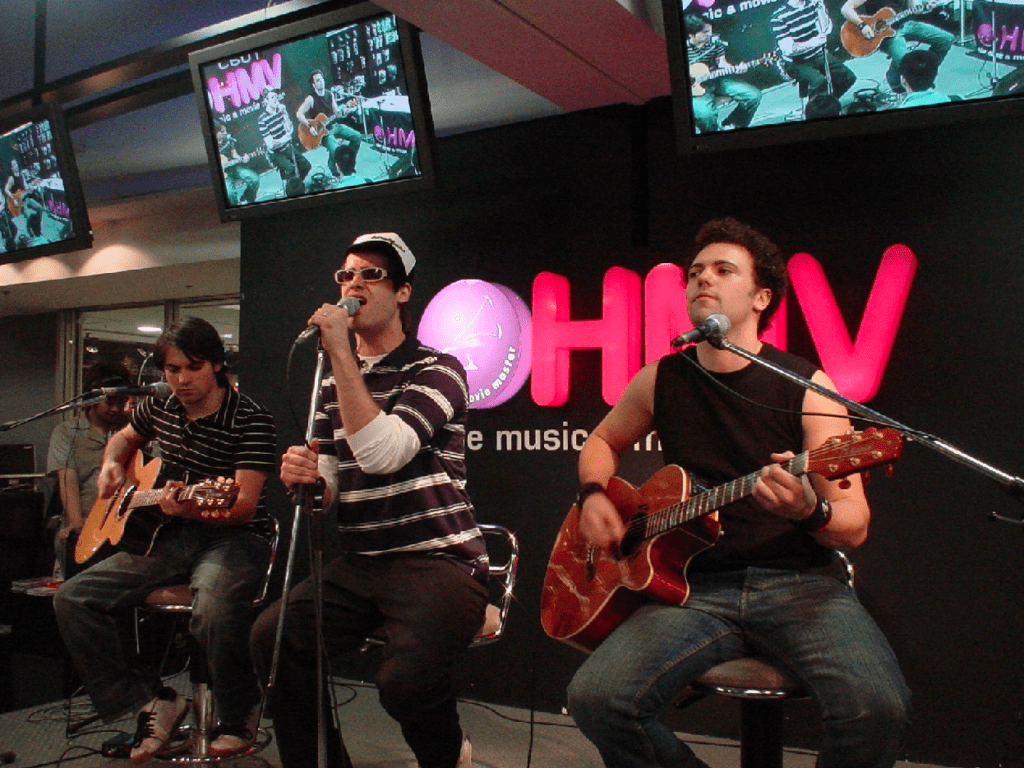
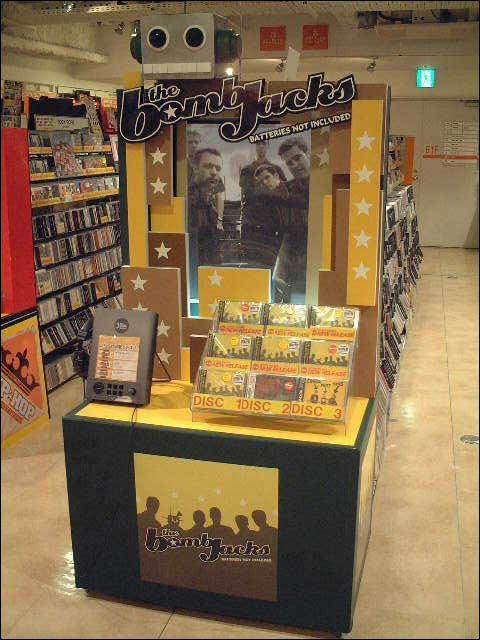
The Ignition Studios era
Instead of going back into the usual studio, Sean (of Allstar Recordings) and I decided to set up our own recording studio. Sean would handle the business side whilst I would handle all the sound engineering. Our plan was simple: set up a recording studio, produce the Bombjacks EP, bring in paying customers and turn it into a viable business.
We had very little money, a basic version of Pro Tools, two cheap microphones and no mic stands. Our first studio was located in a music room complex in Bermondsey, South London. It was a basic room with carpet stuck to the walls. It was was more suited to band rehearsals than a professional recording facility. Without any ventilation or windows that could be opened, it would always turn into a sauna within an hour. A constant 24-hour rumble could be heard through the walls as other bands in the neighbouring rooms rehearsed. It quickly became apparent that this space wasn’t going to work, but it gave Sean time to formulate a business plan and me time to demo the new Bombjacks EP, research all the equipment we would need and learn more about the technical aspects of recording.
As luck would have it, a suitable space became available in Archway, North London. It was located in an old shoe factory and the previous occupant had already converted the ground floor into a recording studio. It was perfect for us to jump right in. It had a large live room with fantastic acoustics for drums. It also included a separate control room with a den to hang out in at the back along with the occasional rat that would dart across the floor.
We formed a new company called Ignition Studios and raised financing to purchase the required studio equipment. Sean built a website for our new studio and started contacting bands on the UK rock scene. Amazingly, the bookings started rolling in! Although I was due to record The Bombjacks EP first and get my head around how to use all of the new equipment, we didn’t want to turn down the money we desperately needed. We now had a much higher rent commitment and a loan to pay off. I would be winging it from day one. We didn’t even have time to test if our new equipment was fully functional. The cables needed to connect our microphones from the live room into the control room were delivered the same morning as our first band arrived with their instruments. They were a young four-piece rock band looking to record four tracks over the weekend.
Thankfully, our new gear worked. After a long day, I’d managed to mic up the drummer’s kit and got the first drum track recorded. We finished around 3am before I got some sleep on the studio sofa. Upon opening the computer session the following morning, the drums I had recorded the previous night were all gone! I must have deleted them somehow when closing the project. It was the first of many mistakes that I would learn from. I managed to finish the recording session on time and I was relieved that the band seemed happy with the result.
After recording the Bombjacks EP and an amazing tour across Japan, I left the band to focus fully on Ignition Studios. It’s a steep learning curve when you’re teaching yourself music production. There were no Youtube tutorials available at this time and experienced engineers were often very secretive about their techniques. I mostly learned through trial and error and using my ears to determine what sounded good. I had plenty of time to experiment on the job as the studio was always fully booked. At one stage I clocked in 72 days of work in a row without a break.
Within two years, we outgrew the premises in Archway and jumped at the chance to move when a much nicer recording studio became available. The new and improved Ignition Studios was now located near Finsbury Park, London. It had two floors of recording space, a control room with a full Pro Tools HD setup, a rack full of analog outboard gear, high-end speakers, and acoustic treatment throughout. We even had a toilet hidden away behind a fake bookcase. It was a significant upgrade and led to bookings from more established bands and some major label work. We expanded our staff so that I was no longer running the studio sessions alone, and then began to branch out into other services like video game soundtracks, podcasting, voiceovers and language localisation. Some memorable clients included work on 50 Cent’s album, Far Cry 2 soundtrack (Senegalese singer Baaba Maal), John Malkovich, Al Murray, voice overs for AAA video game titles and too many great UK bands to mention.
The Audio Jungle era
Around 2008, I was feeling burned out and started to look for a better work-life balance. I moved out of London to become a freelance producer, working with bands in several different studios scattered around the country. Between projects, I would travel abroad as much as possible. During this time I had moved into a tiny spare room that had become available at a friend’s house. I had to buy a child-sized bunk bed just so that I could fit my home studio setup underneath, but the acoustics were surprisingly good for mixing!
In early 2012, Sean asked me to create a few original instrumental tracks for him to upload to a royalty-free library website he’d discovered called AudioJungle. It was my first introduction to the world of music licensing. It had been so long since I had created my own music after years of producing for other people. I had some free time between upcoming projects, so I set up my own artist account on AudioJungle to give it a go.
I listened to the weekly AudioJungle top-sellers list and it was obvious that there was a popular trend towards happy ukulele music at the time. Coincidentally, I’d recently purchased a ukulele of my own, so I wrote a little tune on it that sounded like the soundtrack to a bank commercial and submitted it to the site (in case you’re wondering it was the track, “In Safe Hands“). The next morning, I logged into my AudioJungle dashboard to find $7 in my account from a license sale. This motivated me to create a few more tracks. I made some indie rock and synth pop music to see if that would sell as it was closer to my own musical tastes. These tracks immediately started generating sales that snowballed beyond anything I could have ever imagined. Within 6 months I stopped taking bookings as a freelance producer and worked full-time at growing my portfolio of music on AudioJungle. As I sold more tracks, I began to hear my music used in the wild on TV commercials and all over Youtube.
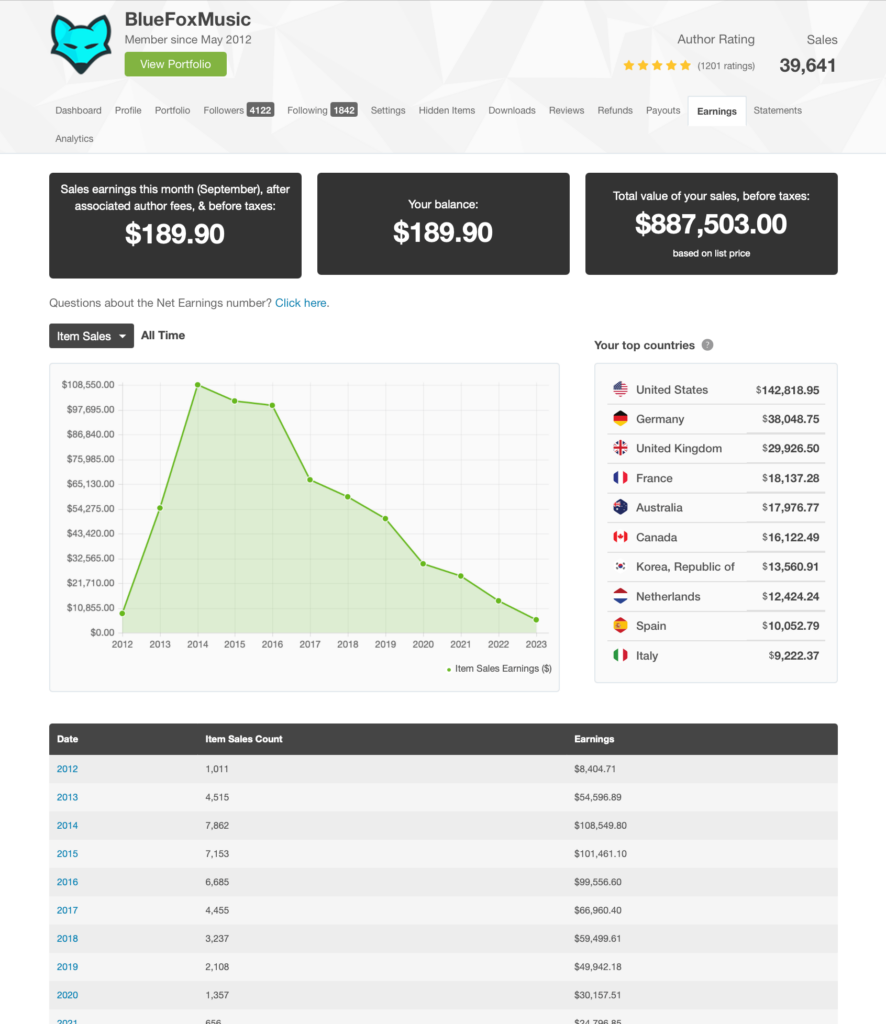
The van life era
My sales during the early years at AudioJungle were amazing. I became one of the top-sellers on the site and was extremely grateful to have some financial freedom for the first time in my life. My wife and I had always talked about travelling full-time. So in 2017, we purchased a fifth-wheel mobile home. We sold most of our furniture, and I downsized my studio gear to a MacBook Pro, headphones, midi controller, an electric guitar and a ukulele. We were now ready for a life on the road.
Whilst travelling the UK and Europe in our mobile home in 2020, I decided it was time to distribute my music to more libraries and TV sync companies and expand the reach and availability of my catalogue. Up until then I had been exclusively making music for AudioJungle so it was a relief to no longer have all my eggs in one basket. I now made an income from several sources and could continue to make a full-time living from my music. Having been creating royalty-free music for over a decade, I began to think that I should really make my tracks available directly to creators and not be beholden to the whims of the platforms who distribute my music. I needed to take control and develop my own distribution platform.
New platform & a move to Canada
I reached out to Sean, who had since sold Ignition Studios and was now running a software design company. We teamed up once again to build our own royalty-free music platform, starting with the full Blue Fox Music back catalogue. I have plans to open this up to other musicians in the near future and offering them much fairer terms than what is currently on offer. At the same time as the platform was being developed, my wife and I decided to move to Canada where I am now setting up a new home studio.
I will be back to recording new material soon and look forward to bringing you lots of new and interesting tracks.
In the meantime, why not browse through my catalogue of tracks and download anything that takes your fancy?
Lester
Last updated: December 2023
